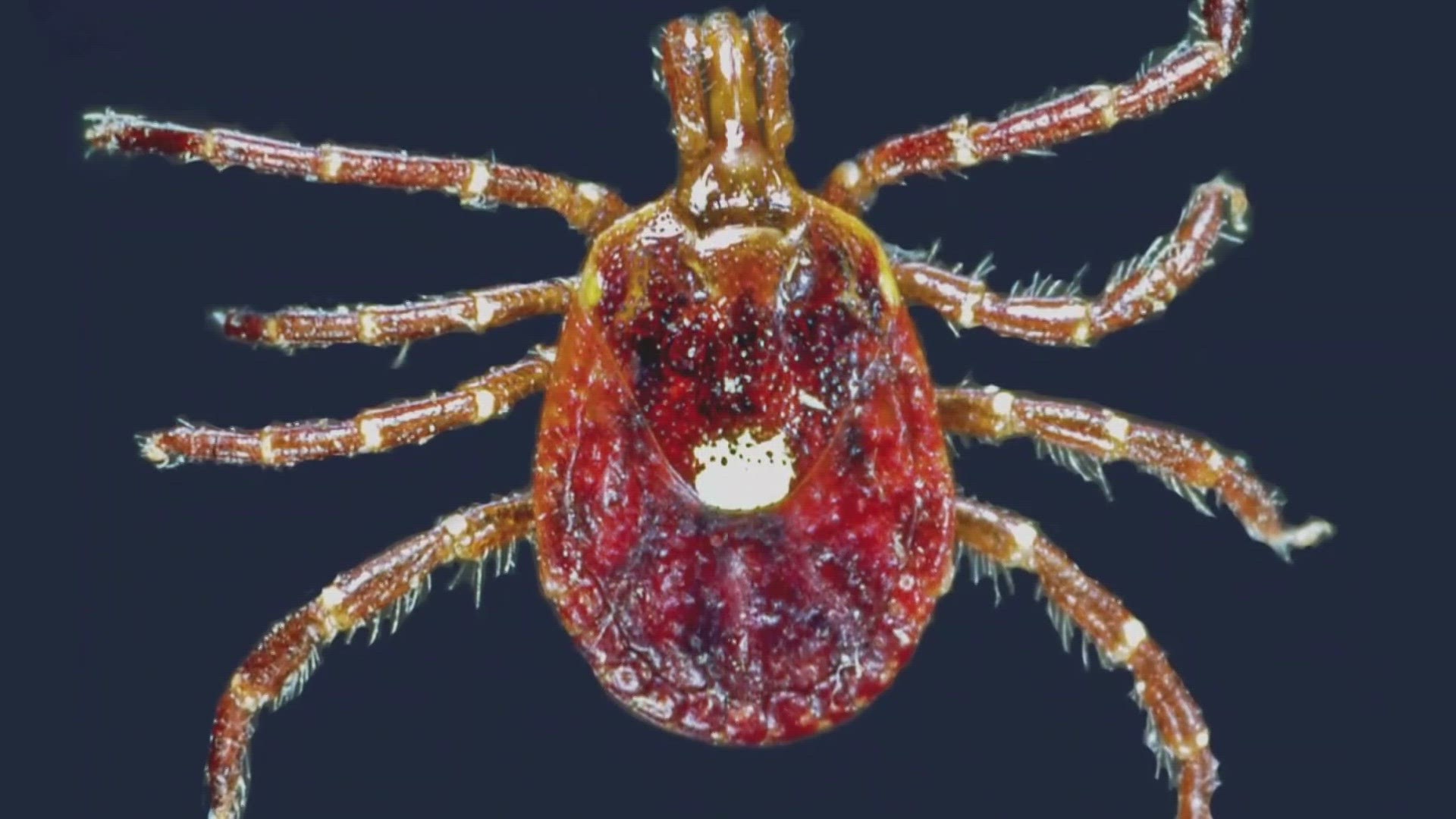SCARBOROUGH, Maine — May is Lyme diseases awareness month, and state health officials are urging Mainers to protect themselves against ticks that carry Lyme and other diseases.
Due to climate change and warming winters, experts say tick "season" is now pretty much a year-round problem.
Chuck Lubelczyk leads a team of researchers in every county in Maine dragging all types of terrain for ticks. How active ticks will be this summer depends on Mother Nature.
A vector ecologist for the Maine Health Institute for Research, Lubelczyk, and his team are on the lookout for new ticks emerging in Maine.
The Lone Star tick is on their radar. A bite could cause a lifetime allergic reaction to red meat. It's called Alpha-gal syndrome and which causes food allergies to red meat such as beef, pork, and other mammal products. Researchers are also looking for the Asian long-horned tick, an invasive tick that can impact the health of livestock.
"We haven't found any evidence of those ticks arriving yet, but you never say never. But I think it's inevitable at some point," Lubelcyzk said.
According to the Maine CDC, we are coming off a record number of Lyme cases in 2022. Public health officials counted more than 2,600 cases, beating the record set in 2019. Also on the rise are diseases transmitted by deer ticks: anaplasmosis and babesiosis. Experts say warmer winters allow ticks to migrate into areas in western and northern Maine, allowing the parasites to live under the snowbanks.
Dr. Rob Smith is an infectious disease specialist and the director of the MHIR Vector-Borne Disease Lab. He says it's critical that people learn what diseases are transmitted by ticks and the signs and symptoms.
"If you get an unexplained fever with flu-like symptoms during the tick season, which is pretty much all year now, that is a consideration, especially if you have been in an area where you may have been exposed to ticks," Smith said.
Scientists don't have a crystal ball when it comes to predicting what kind of tick season we will have this summer, but they say there is one key factor — rainfall.
Hot and dry conditions could put a big dent in tick numbers because ticks need conditions of at least 80 percent humidity to survive.
"If we get our normal amount or heavier precipitation going into late May, June, and July, the tick numbers are going to do just fine going into the season," Lubelczyk explained.
There have been more than 450 submissions of ticks to the University of Maine Cooperative Extension Tick Lab. Experts encourage folks heading outdoors to wear protective clothing and EPA-recommended repellent and do frequent tick checks on themselves and their pets.

